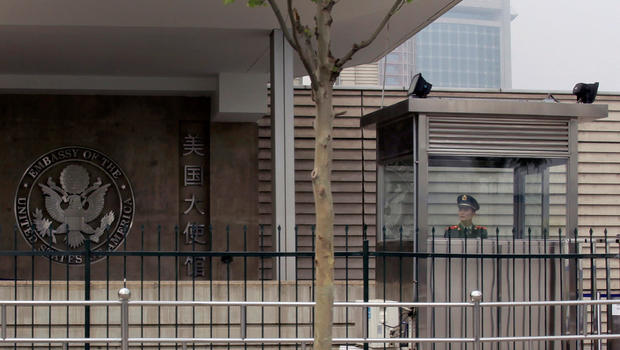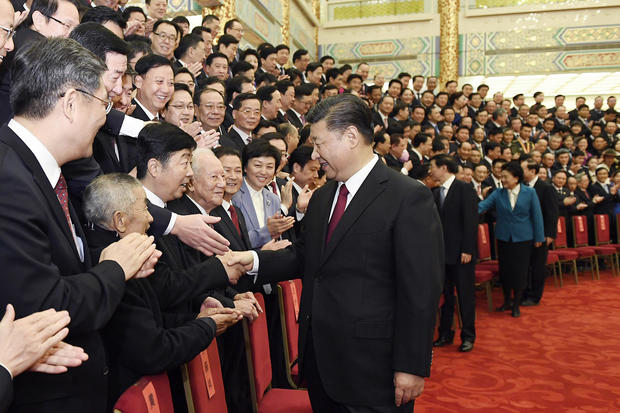By Lauren Hilgers

The first threatening phone call that Zhuang Liehong got in New York was in the fall of 2016, on a gloriously warm September morning.
The call came from a jail where his father was being held following a protest in Mr. Zhuang’s home village in Southern China.
“Is this Zhuang Liehong?” asked an unfamiliar voice.
When Mr. Zhuang said yes, there was a pause and his father’s voice came on the line.
“Son,” he said, “stop doing what you’re doing. It will be bad for your family.”
What Mr. Zhuang had been doing, for the most part, was posting on Facebook.
What Mr. Zhuang had been doing, for the most part, was posting on Facebook.
He was putting up photos that had been sent by friends and family, which recorded a police crackdown that had swept his home village, Wukan.
Five years earlier, during the fall of 2011, Mr. Zhuang had been a ringleader in a series of protests that overtook the little seaside village.
He had helped alert his fellow villagers to land grabs that were chipping away at village boundaries and filling the pockets of local officials.
When those protests ended, it seemed the villagers had emerged victorious.
Villagers had been granted the right to hold local elections, and Mr. Zhuang was one of seven new village committee members tasked with administrating the village and returning stolen land.
Back then, Wukan was held up among democracy activists as a symbol of liberalization, a hopeful sign that China was open to political change.
Back then, Wukan was held up among democracy activists as a symbol of liberalization, a hopeful sign that China was open to political change.
But the elections were misleading, the hope misplaced.
Mr. Zhuang fled to New York in 2014.
Two years later, he found himself answering that phone call in New York City, swept up in new political currents.
The Communist Party of China was taking a recent crackdown on dissent and moving it over borders. Mr. Zhuang had moved to the United States to speak freely about his village.
In his father’s voice he heard the ventriloquism of the corrupt officials who had sold off his village land.
Mr. Zhuang guessed that his father was surrounded by security personnel.
He felt the phone call suggested a trade — his father’s freedom for Mr. Zhuang’s silence.
Since 2015, a sweeping crackdown on internal dissent has ensnared hundreds of human rights lawyers, feminists, journalists and democracy activists.
Since 2015, a sweeping crackdown on internal dissent has ensnared hundreds of human rights lawyers, feminists, journalists and democracy activists.
China now spends more on internal security than it does on its military.
And as the crackdown continues at home, the Chinese Communist Party has started to expand its reach, looking to enforce censorship, increase surveillance and silence dissent across borders.
Their targets have included academics, exiled business elites, former judges and activists like Mr. Zhuang.
In a twist, as states across the globe retrench and solidify their hold, the quest for centralized rule and the quashing of dissent have caused borders to become porous.
In a twist, as states across the globe retrench and solidify their hold, the quest for centralized rule and the quashing of dissent have caused borders to become porous.
Russia stands accused of poisoning a former spy living in Britain.
Turkish thugs attacked a crowd of protesters in Washington, D.C., during a visit by Turkey’s authoritarian-leaning president, Recep Tayyip Erdogan.
Some of these tactics are old.
Autocratic regimes have long sought to eliminate former spies living abroad.
Detaining family members as a proxy for a high-profile dissident in exile is an old practice. Technology, however, has decreased the price of harassment.
The same tools that enabled the uprisings in the Arab Spring, the same ones that help Mr. Zhuang promote his cause, make surveillance and intimidation easier.
Now anonymous teenagers can harass on Twitter and so can agents of state.
The warning call that Mr. Zhuang got from his father would not be the last.
The warning call that Mr. Zhuang got from his father would not be the last.
Over the next few months, they kept coming.
Mr. Zhuang had several phones, and if he stopped answering one, the calls would appear on another. Security officers tracked the phones of his friends and interrogated them if they accepted calls from Mr. Zhuang.
A CCTV camera mysteriously appeared outside the door of the home that Mr. Zhuang’s mother shared with his handicapped older brother.
Friends and family no longer visited.
His father was sentenced to three years in prison and kept sending warnings.
His mother called him from her ramshackle home in Wukan.
When she called, she warned her son that, even in the United States, he was not safe.
The extended reach of the Chinese government has affected exiles and immigrants across the world. In Canada, a former Supreme People’s Court judge, Xie Wendong, reported that his sister and son had both been detained by security forces.
The extended reach of the Chinese government has affected exiles and immigrants across the world. In Canada, a former Supreme People’s Court judge, Xie Wendong, reported that his sister and son had both been detained by security forces.
Chinese government agents sent a lawyer to Canada to try to persuade him to return to China. Authorities also ordered Xie’s ex-wife to bring him back to China, threatening her with detention if she failed.
In France, Zheng Ning, a former businessman, was successfully pursued by Chinese agents and ended up returning to China.
In a report released in January, the Citizen Lab, a research group based at the University of Toronto, recorded a phishing operation that ran for 19 months, targeting Tibetans, the Falun Gong-related publication The Epoch Times and groups of ethnic Uyghurs.
In the United States, scholars studying China have also reported that phishing scams and targeted malware have become a matter of routine — with repeated attempts to access research and identify sources.
In the United States, scholars studying China have also reported that phishing scams and targeted malware have become a matter of routine — with repeated attempts to access research and identify sources.
An outspoken Chinese student at the University of Georgia recently told Radio Free Asia that he had received a call from a Chinese security officer, asking him to inform on other Chinese students and activists.
Ethnic Uyghur journalists now living in the United States have reported the disappearance of multiple family members still in China.
Chen Xiaoping, a journalist at the Long Island-based, Mandarin-language media company Mirror Media Group, issued an open letter on Twitter in January asking the Chinese government to release his wife, who had been missing in China for 90 days.
Chen Xiaoping, a journalist at the Long Island-based, Mandarin-language media company Mirror Media Group, issued an open letter on Twitter in January asking the Chinese government to release his wife, who had been missing in China for 90 days.
She had disappeared shortly after Mr. Chen began interviewing the exiled Chinese billionaire Guo Wengui.
Soon after Mr. Chen released the letter, a video was anonymously posted on YouTube — a tape of his wife denouncing his work in the United States.
The threats that Mr. Zhuang has received have not dissuaded him from continuing to protest China’s government.
The threats that Mr. Zhuang has received have not dissuaded him from continuing to protest China’s government.
They have, however, stolen his peace of mind.
The political problems that Mr. Zhuang had were, he felt, with the local government in Guangdong Province.
He assumed those officials would not be able to reach him in New York.
And then, when the phone calls started coming, he began to doubt himself.
Mr. Zhuang, like so many other exiled Chinese citizens, is finding that he is still subject to Beijing’s demands.
Mr. Zhuang, like so many other exiled Chinese citizens, is finding that he is still subject to Beijing’s demands.
Worldwide, China’s government is sending a chilling message: no matter where you are, speaking freely comes at a steep price.

